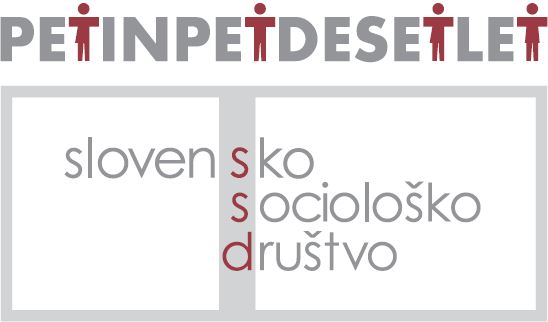Social Science Forum 93 (XXXV)
The dominant epistemology for studying racism and critical potential of historically forgotten epistemologies
Blaž Vrečko Ilc
ABSTRACT:The rise of racist phenomena both globally and locally is perceived ever more as a crucial issue in the present socio-political context. This has led to the substantial growth of intellectual considerations on the phenomena, even in local contexts where racisms have rarely been analysed. The article critically analyses the central issues of the dominant epistemology of most existing research and reductionist understandings of racisms, their historical developments and persistence in liberaldemocratic capitalistic societies organised as nation states. By reflecting on the genesis and fundamental coordinates of the dominant epistemology and utilising the insights of alternative epistemologies, a framework is established for a more nuanced understanding of racisms that mirrors the complexity of these phenomena.
KEY WORDS: racism, epistemology, Hannah Arendt, Oliver Cox, Franz Fanon
>> Download
Measuring Gerotranscendence in Slovenia – a revision of the measurement tool
Otto Gerdina
ABSTRACT: This paper is based on a methodological study with which we tested and adapted the tool for measuring Gerotranscendence in Slovenia. The original scale with 25 items was developed by Lars Tornstam, PhD. First, the scale was translated into Slovenian and adapted to the cultural setting. This translation was pre-tested with 14 cognitive interviews. The results showed that nine items were problematic. The aim of this paper is to point out important differences in the understanding of these nine items and suggest more appropriate translations on the basis of the cognitive interviews. While describing the process, the paper illustrates the significance of pre-testing survey questionnaires.
KEY WORDS: gerotranscendence, questionnaire adaptation, translation, pre-testing, cognitive interviews
>> Download
Moral Pragmatism in Managers’ Ethical Decision-Making
Adriana Rejc Buhovac, Dana Mesner-Andolšek, Matej Drašček
Adriana Rejc Buhovac, Dana Mesner-Andolšek, Matej Drašček
ABSTRACT: The ethical decision-making of managers based on ethical approaches has not been yet researched in Slovenia. The purpose of the study was to find out which basic normative ethical approaches managers use in different circumstances and which personal and organizational variables influence their choices. Moreover, the virtue ethics is included as a normative ethical approach, not as an independent variable. Based on analysis of vignettes among a sample of 166 managers, the research shows that in personal and business life virtue ethics is the dominant ethical approach, while deontology is the prevailing one for general ethical dilemmas. Only a limited number of independent variables influence managers’ choice of ethical approach. We conclude that moral pragmatism is the answer for the ethical decision-making of managers.
Gender difference in employee health in Slovenia: the role of work intesity, organisational commitment and mobbing
Jožica Čehovin Zajc, Ana Hafner
ABSTRACT: We aim to examine differences in the effect of work intensity, organisational commitment and mobbing on the health of working women and men in Slovenia. A subsample of employee data (n=589) included in a Slovenian Public Opinion research study on a representative sample of Slovenian inhabitants is statistically analysed. This study reveals that men have better self-reported health and are less absent from work. However, women’s health is significantly negatively correlated with work intensity and men’s health with mobbing. Affective organisational commitment is positively connected to the health of both genders while the normative one is negatively correlated only with women’s health. Our study contributes to the theory of gender and health with evidence of health being not only a biological but also a social phenomenon which cannot be generalised, but must be interpreted in a specific time and social context.
KEY WORDS: gender, health, work intensity, organisational commitment, mobbing
